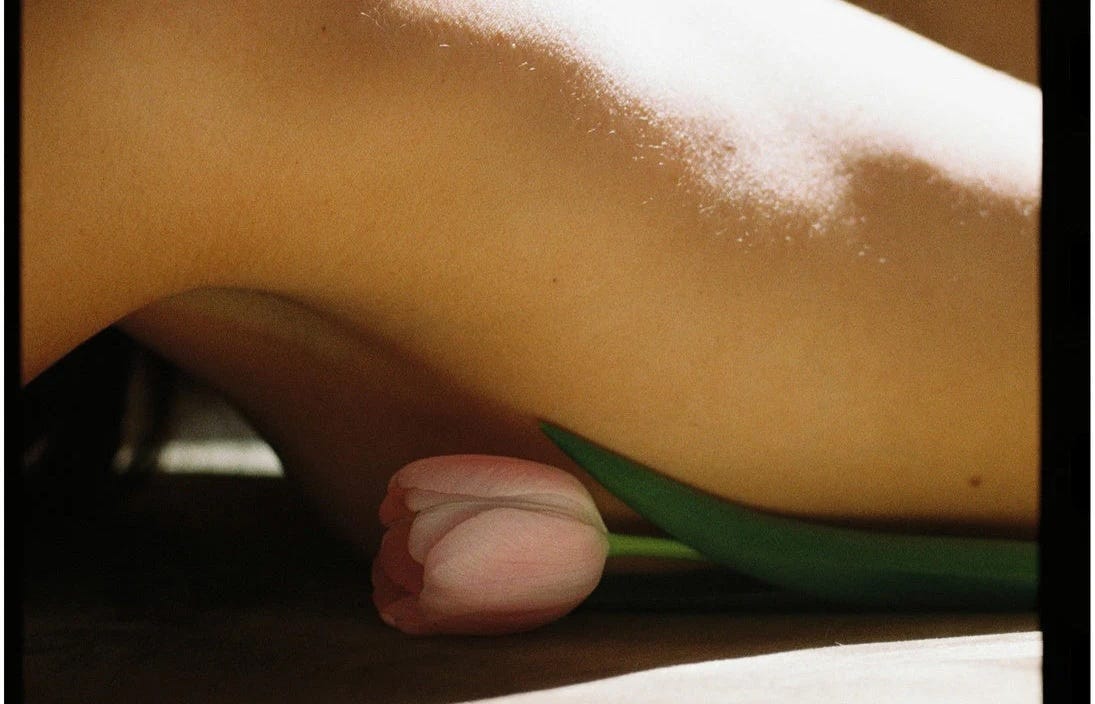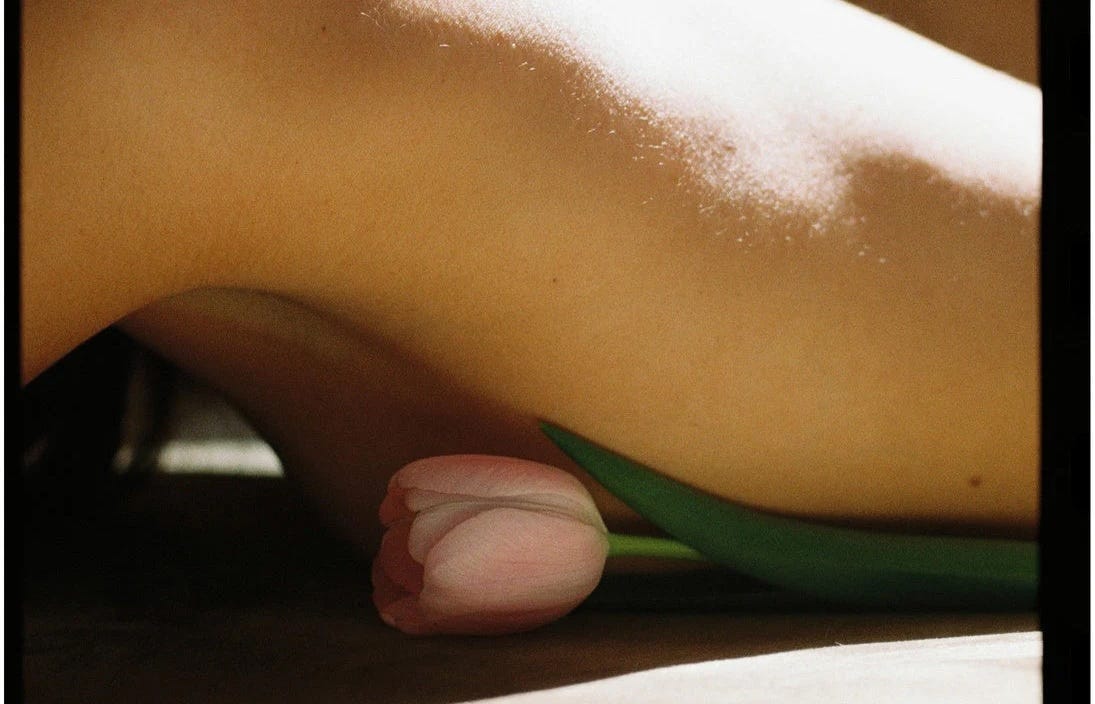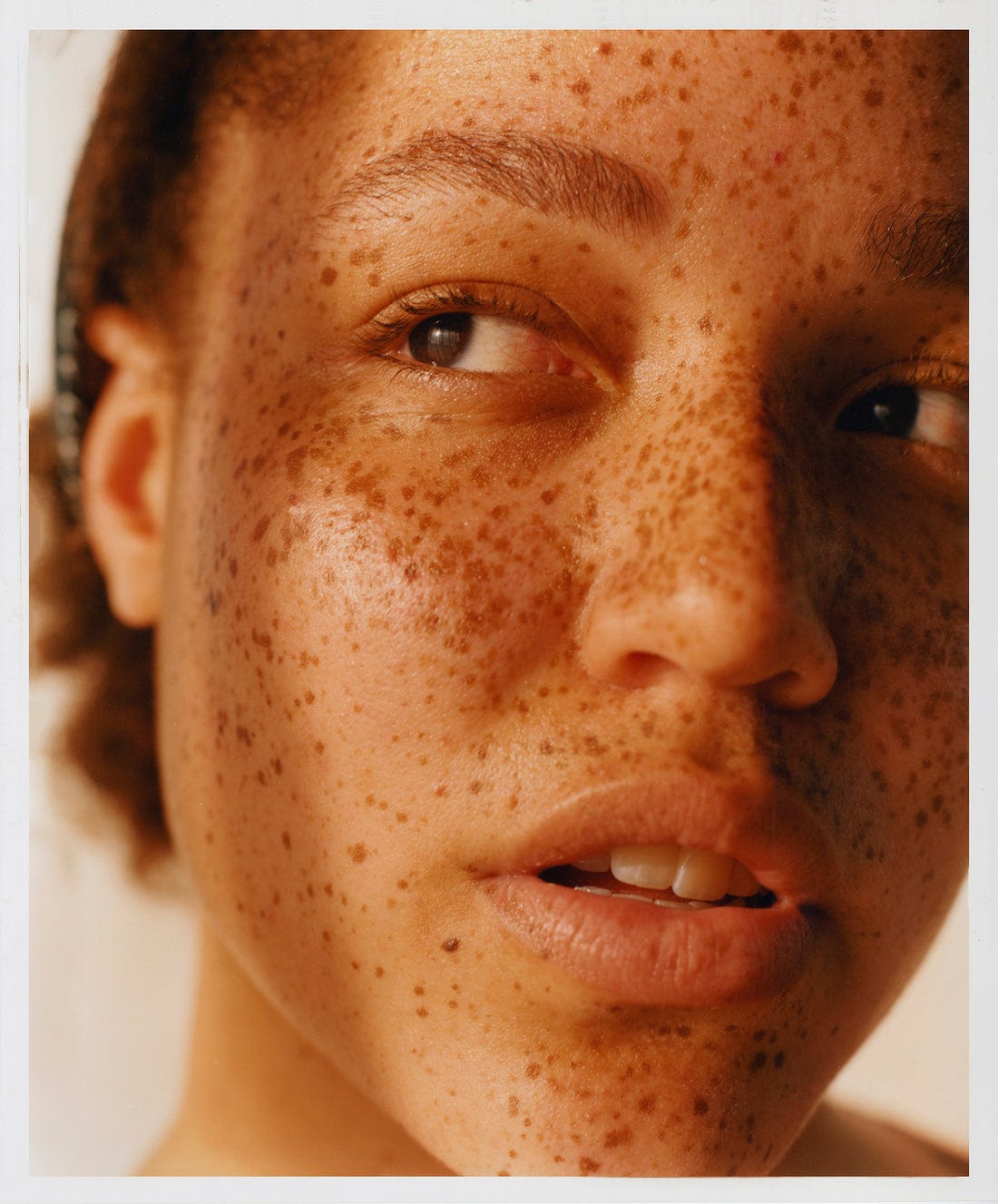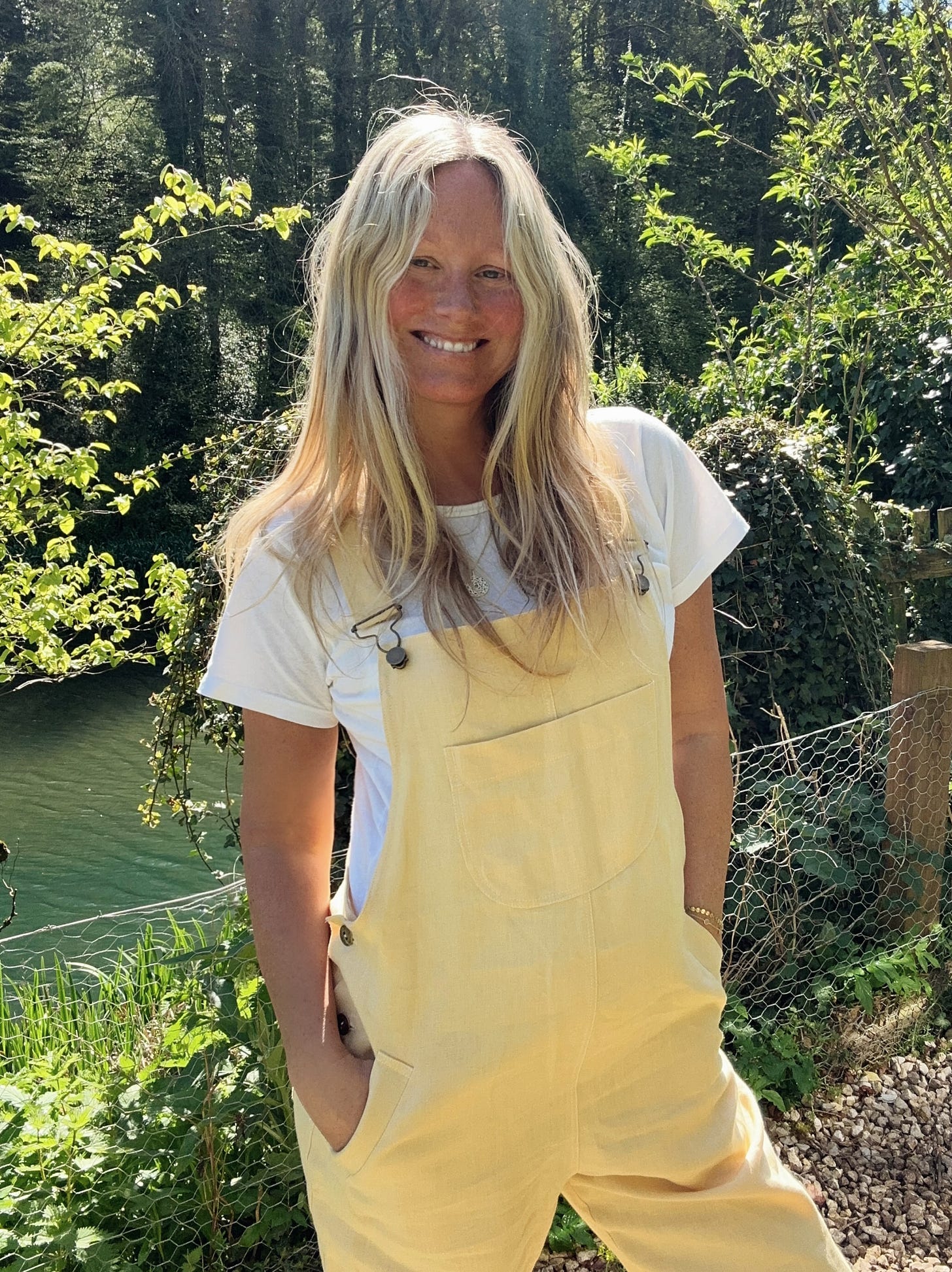🌍 The BRiMM Journal: have a free read ✍️
We're back with another limited opportunity for you to check out our soon-to-be-paywalled member content
Welcome to our weekly Thursday Journal newsletter, in which we share BRiMM’s own editorial, including all manner of mindset-shifting, habit-changing thinking and findings. Soon these pieces will only be accessible to members, but this evening we’re sharing a second entire article with you for free, to give you, as one of our early supporters, an experience of the inspirational, high-quality and all-round happy-making features to come.
Two more things, before we get to it. Firstly, we’d love to invite you to BRiMM’s first ever event: check out the date, time and place on the invite below. We’re teaming up with the wonderful E.L.V. Denim for an evening of conscious fashion, real connection and an exclusive look at our launch Reset Boxes. Oh, and Negronis. Lots of them. Drop us a message quick to RSVP.
Finally, and most importantly – fancy becoming a founder member to make sure you can always dig into the Journal? All you have to do right now is join the waitlist for one of the limited spots currently dropping weekly. Refer a friend to the list too and you’ll both save £20.
Less but More: How and Why It’s Time to Take a Different Approach to Beauty
This week: When it comes to self-care – could we actually feel and look better, while doing less harm to the environment, if we just used fewer, better things? Industry expert and regular Journal author Lisa Oxenham investigates
After 25 years in beauty – most recently as beauty and style director at Marie Claire and now as an ongoing advisor to a number of national beauty-focussed boards – I’ve seen how self-care has evolved from soothing ritual to overwhelming routine, fuelled by influencer trends and leaving plastic packaging and crammed bathroom shelves in its wake. It’s time to embrace lower-impact beauty and rethink what truly works – for our skin, our sanity and the planet.
The self-care trap
The skincare industry has shifted dramatically in the last two decades, especially in Western markets. This growth is partly attributed to the "lipstick effect," where shoppers indulge in small luxuries, like beauty products, to boost their morale during economic downturns. The surge is also largely driven by social media influencers promoting health and beauty trends, which then leads to increased consumer spending in these areas. And it doesn’t seem to be slowing down. According to the British Beauty Council’s 2024 Value of Beauty report, UK consumers spent £27.2 billion on beauty and personal care in 2023 – a huge 11 increase from the year before. Barclays then later confirmed another 7.3 boost in the sector the following year, in its ‘Beauty Boom: Redefining Consumer ‘Essentials’ report.
Thousands of products have launched with the promise of transformation – each new serum, cream or mask claiming to be the one. There was a moment not so long ago when my own bathroom resembled a mini apothecary, bursting with the latest innovations, all in the name of self-improvement.
And beyond the physical effects, the psychological impact of beauty overconsumption is just as concerning. The industry thrives on insecurity, reinforcing unrealistic standards that push consumers to keep buying. As makeup artist-turned-psychotherapist Lee Pycroft points out, “Western culture glorifies perfection and competition, especially on social media, where filters and AI-enhanced imagery distort our perception of what ‘beautiful’ really looks like”. The result? “A culture of comparison and chronic dissatisfaction, where self-care becomes yet another source of pressure instead of peace.” While the beauty industry has, at times, played on our insecurities, I’ve also seen firsthand how it can uplift — giving people the tools to express themselves, build confidence, and feel empowered in their own skin. It’s this duality that makes the conversation around conscious beauty so important. We can embrace the joy and creativity beauty offers, without compromising our health or the planet.
Plastic but not fantastic
So, how can we, collectively, work our way out of these increasingly urgent issues; issue that so many of us are currently unwittingly adding to, each of us with our separate shopping baskets and in front of our independent mirrors – using more and more products that not only don’t do what we’d like them to, but harm us to some extent, as well as harm our shared home?
Conscious care: a new direction
For me personally, it wasn’t until I made a self-aware lifestyle change that I saw the bigger picture. I’ve always leaned toward the natural side of beauty, but it was during Covid that things shifted. Like many, I stepped out of my routine and had space to reflect. I left London after 25 years and moved back to Stroud, Gloucestershire – where I grew up. Surrounded by nature and a slower pace of life, I saw beauty through a different lens. People here approach wellness in a more grounded, intuitive way. At the same time, I became a new mum. Suddenly, time was precious, and my elaborate self-care rituals no longer fit. I was forced to strip everything back – and in doing so, I realised how overcomplicated my beauty routine had become. That combination – the stillness of rural life, becoming a mother, and seeing the industry from the outside – was the reset I didn’t know I needed.I began to strip back, simplify and realign my routine with my values. Today, I follow a minimalist skincare approach, one rooted in intention and respect for my skin as well as the world around me. My everyday staples include slow beauty favourites like Irene Forte’s Pistachio Face Oil, Terre Verdi’s multitasking Argan Oil and the Green People Retinal Serum – all long-lasting, high-performance and made with skin-nourishing, sustainable ingredients. I’ve also found joy in refillable options like the Medik8 Press & Glow, and protective essentials like Chantecaille’s UV Fluid SPF 45, which makes streamlining my morning routine effortless. What has this 25-year journey taught me? That self-care doesn’t have to mean excess. A conscious, simple routine can be just as effective, without the waste, the stress or the endless cycle of chasing perfection. And I’m not the only one rethinking things – thankfully, a shift is happening.
The rise of the ‘underconsumption core’ – a growing movement focused on intentional self-care and planet-positive beauty, is challenging the idea that more is better. More brands and consumers are embracing streamlined skincare routines that prioritise quality and mental wellbeing over excess and prove that multi-functional, well-formulated products can deliver real results without environmental harm.
Research from Paige Tracey at the Soil Association Certification reveals that between 20 to 40 per cent of beauty products go to waste – whether expired, unsold or abandoned in bathroom cabinets. This contributes to the billions of discarded packaging units yearly, exacerbating the global pollution crisis.
Low-impact solutions from forward-thinking brands
In response, a new wave of conscious beauty brands is stepping up. Medik8 is leading the charge with refillable packaging and low-impact formulations. Lush continues to innovate with solid, ‘naked’ skincare that avoids single-use plastics altogether. Brands like Lumene and UpCircle Beauty reimagine waste as opportunity, turning food byproducts such as coffee grounds and fruit extracts into nutrient-rich skincare.
Circular systems are also gaining momentum. Beauty Kitchen’s ‘Return, Refill, Repeat’ programme invites customers to send back empties for cleaning and reuse. Ren Skincare champions full transparency, ensuring every component is recycled, recyclable or reusable.
Cleaner formulas, fewer steps
And the changes don’t stop at packaging. Formulas themselves are becoming more effective, more concentrated and more thoughtful. Biotech brand Orveda uses prebiotics and enzymes to support the skin’s microbiome, reducing the need for product layering. Irene Forte Skincare, Tata Harper and Green People prioritise high-potency botanicals to deliver visible results with fewer steps.
It’s about all of us (formerly Haeckels) incorporates biodegradable, locally harvested seaweed into its products. Wildsmith has introduced compostable packaging to support its natural formulas, while SBTRCT pioneers solid, waterless skincare that significantly cuts carbon and packaging waste.
Technology is also helping reduce overconsumption by making beauty smarter and more personal. L'Oréal’s Skin Genius app uses AI to assess skin conditions and deliver targeted product recommendations, minimising impulse buys and trial-and-error shopping. Similarly, Skin + Me offers custom, prescription-based skincare tailored to your skin’s actual needs.
Industry voices championing simplicity
This return to simplicity is echoed by respected voices in the industry. Skincare authority Caroline Hirons, a best-selling author and aesthetician with decades of experience working with global skincare brands, promotes routines built around performance, not popularity. Harley Street cosmetic dermatologist Dr Sam Bunting advocates for minimalism that avoids the pitfalls of product overload. Makeup artist Lisa Eldridge, a renowned industry veteran and founder of her own cult beauty brand, encourages a slower, more thoughtful approach, one that focuses on confidence, not perfection.
To help consumers make more informed choices, the British Beauty Council’s Sustainable Beauty Coalition has created the Planet Positive Beauty Guide, a practical resource for those wanting to align their beauty habits with their values.
The BRiMM breakdown: How to reduce overconsumption without sacrificing results
In our pursuit of more mindful beauty, it’s essential to reassess our habits and adopt choices that serve both our skin and the environment.
Start by prioritising prevention over repair. A consistent, long-term approach, rather than constant fixes, builds healthier skin over time.
Simplify with multi-use products. Choose formulations that serve more than one function, like tinted SPF, moisturisers with actives or serums that address multiple concerns. Brands like Orveda, Tata Harper and Irene Forte offer high-performance options that do more with less.
Swap disposable beauty for reusable alternatives. Replace wipes with washable cloths, use refillable bottles and look for compostable or waterless products that eliminate packaging waste.
Rethink impulse beauty buying. Resist the pull of every new launch and invest in fewer, higher-quality products that align with your skin’s actual needs and your values.
Choose familiar, comforting formulations. In a fast-paced world, there's a growing desire for products that feel reassuring and simple. Brands that combine effectiveness with a clear, slow beauty ethos are meeting that need.
Editor’s picks: mindful products that work
Medik8 Press & Glow Refill, £28
An environmentally aware refill to keep your routine low-impact. This resurfacing formula leaves skin smoother and softer after just one use.
SBTRCT Vitamin C Booster, £32
A solid serum powered by THD Ascorbate (a stable form of Vitamin C) - brightens, firms, no bottles required.
UpCircle Face Toner with Mandarin & Chamomile, £19.99
Infused with repurposed mandarin water and soothing chamomile, this spritz tones and calms - the perfect prep between cleanse and serum.
Green People Retinal Serum, £34
Gentle yet effective, this serum softens fine lines and smooths texture using a nourishing botanical blend.
Tata Harper Eye Balm, £65
Rich and nourishing, this balm deeply hydrates the delicate eye area and lasts for months – ideal for those looking to reduce repurchases.
Irene Forte Pistachio Face Oil, £130
A lush, skin-reviving oil that enhances glow while aligning with slow beauty values.
Terre Verdi Morocco Argan Oil, £25
A versatile, COSMOS Organic-certified oil ideal for double cleansing, facial hydration, body care or even hair. Long-lasting and minimal waste.
Orveda Firm Brew Cream, £350
Combines prebiotics and enzymes to deeply hydrate and strengthen the skin barrier – great for season transitions.
Wildsmith Active Renewal Cleanser, £55
With antioxidant-rich rosehip and sugar beet, this creamy cleanser doubles as a mask - cleansing and restoring in one step.
Chantecaille UV Protecting Fluid SPF 45, £75
A lightweight, tinted sunscreen with botanical ingredients and high protection – ideal for simplifying your morning routine.
We hope you enjoyed this flavour of the kind of mind-expanding, planet-positive words you can be expecting from us each week. As we said up top, these articles will soon be member-only, so if you want to carry on receiving them please join the founder member waitlist. Spaces are limited. Vibes are high.
Team BRiMM x







So many positive developments in the beauty industry! It really makes me feel optimistic about the future :)